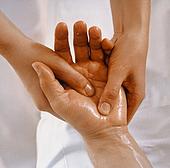The whole is greater than its parts. This is especially true of the human body. Psychology studies the mind, thought and behaviors. Holistic psychology is like a zoom lens. It has the ability to zoom in and out to get to the root cause of factors that influence human behaviors. It attempts to consider human behavior in relationship to the organism as a whole. It incorporates many scientific disciplines including nutrition, neurobiology, medicine and neurochemistry. Along with the scientific disciplines applied holistic psychology also considers spirituality, health, social and economic influences, intuition and other less traditional aspects.
Applied Holistic Psychology
Applied psychology applies psychological principles and findings to real world issues. It is used to solve practical problems of human behavior and experience. Holistic psychology is grounded in the concept that the mind, body and spirit are integrally connected. Applying holistic approaches to the skills learned while earning a masters in applied psychology, open up a realm of possibilities.
Traditional psychology fails to look at the human body as a whole. It focuses on specific areas and treats the symptoms while overlooking the underlying cause. Holistic psychology attempts to remedy this shortcoming. It attempts to take into consideration factors about the human condition that is yet unmeasurable.
Healing With Nature
Ecopsychology is a form of applied holistic psychology that explores the relationship between humans and nature. It combines ecological and psychological principles to expand the emotional connection with the natural world, thereby assisting individuals to develop sustainable lifestyles and remedy alienation from nature. Research suggests that an individual’s connection to nature can improve relationships and emotional health. Taking the time to walk in the woods or through a city park refreshes the mind and the spirit.
This offshoot explores how communing with nature can give the sensations of harmony, stability, timelessness and balance. Research actually shows that living near parks and green spaces can lengthen life and reduce disease. Researchers suspect nature tends to lower stress. Experimental studies of the central nervous system where stress hormones, heart rate, respiration and sweating were measured showed that short doses of nature calm people down and sharpen their performance.
A Gut Feeling
New research suggests that the brain in your gut has a powerful influence over the brain in your head. Cell for cell we are mostly bacteria. This bacteria outnumbers our own cells and most of them make their home in our gut. The gut has evolved an incredibly complex neural network that leverages this bacterial ecosystem to enhance physical and psychological well-being. Gut microbiome can actually influence neural development, emotional behavior, pain perception, stress system response and brain chemistry.
These studies suggest that our gut can influence our mental health. A holistic approach to health and psychology takes this interrelatedness into account when overall health and psychological well-being. New research suggests that probiotics (beneficial bacteria) can be used to treat mood and anxiety disorders.
The gut is an amazing organ and the only one to boast its own independent nervous system. Gut bacteria produces hundreds of neurochemicals that the brain actually uses to regulate psychological and mental processes. These processes include memory, learning and mood. That is why you feel many emotions in your stomach.
Applied holistic psychology is a profoundly interesting field of study. By examining influences beyond the mere mental state that might be causing human behaviors, we open the door to a realm of interesting possibilities from the healing power of nature to the source of gut feelings. Holistic psychology combines many disciplines to explore the interconnectivity of mind, body and spirit. Our understanding of human behavior expands every day as researchers explore new realms of possibility and attempt to look beyond the symptoms.




